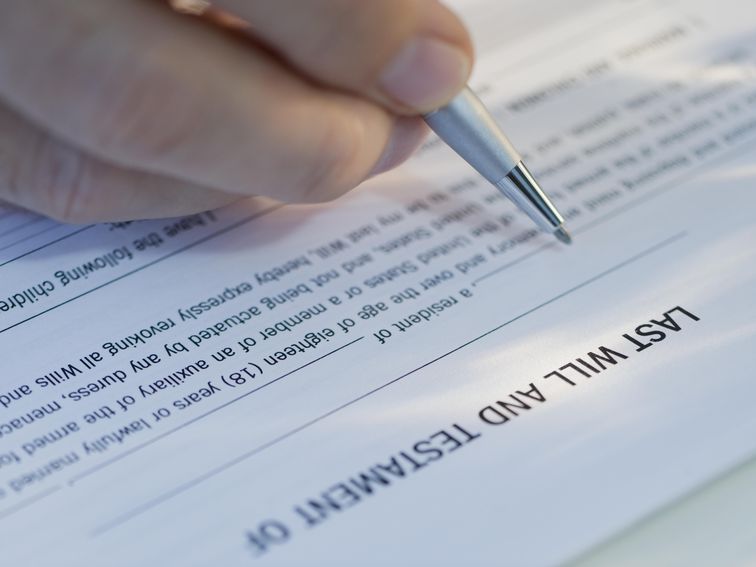News
What is a will? – CNET


Getty Images
When you die, something will need to be done with all of your possessions — and your children, if they’re under the age of 18. The best way to ensure that your preferences for how those assets and dependents are handled is to draw up a will. Carefully considering your own mortality — and how you want your affairs managed in the event of your death — isn’t exactly fun, but creating a last will and testament is worth the effort.
What is a will?
A will is a legally bound document that details your wishes for how you want all of your “stuff” — including your assets and any children under the age of 18 — to be handled after you die. A last will and testament is different from a living will.
A living will: This document spells out your health care preferences in the event you become terminally ill and unable to communicate. Designed to provide guidance to your family and doctors, a living will only details your preferences regarding major health and life support decisions — like tube feeding and the use of pain medications.
A last will and testament: This document specifically addresses what should happen to your assets, possessions and minor children when you die.
These documents may be used separately or in tandem. For instance, if someone falls ill, their living will might state that they don’t want to be kept on life support. Once they passed away, their last will and testament would dictate how to divide their assets.
How a last will and testament works
If you die without a will that dictates exactly how you want your assets, responsibilities and dependents handled, your relatives will have to use their best judgment. Sometimes their choices might diverge from your wishes.
When you’re explicit about who should get what, however, there’s less guesswork involved. While writing a last will and testament might be daunting, it helps ensure that your preferences are known and carried out.
Here are some of the things that an effective last will and testament can do:
- Appoint an executor: An executor carries out the actions described by your will — they are akin to your will’s general manager. This person can be a relative or a lawyer, as long as it’s someone you trust. Sometimes you can have joint executors, like a spouse and a lawyer.
- Split up assets: Assets can include real estate, money and anything else you’d like to assign to a person, group or organization. Directions and instructions for how to split the assets should be detailed.
- Name beneficiaries: Beneficiaries can be people or organizations that receive things you leave behind.
- Designate guardians: If you have children under the age of 18, a will assigns them a guardian. If you don’t name a guardian for your children, a court will appoint one.
The more specific you are in your will, the better chance your executor will accurately assign your assets and follow through with your wishes.
Note that if you have life insurance, the policy will have its own set of beneficiaries and instructions, and you don’t need to include that in your last will and testament. This also applies to an IRA or 401(k).
Read more: 5 investment accounts everyone should have
How to validate a will
Once you’ve completed writing your will, you’ll need to assemble a small group to get it validated. Most states require that there be at least two witnesses present and that you sign your will in front of a notary. All of them should be neutral parties with no personal stake in your will. So, if possible, avoid having close relatives — or the lawyer who prepared your will — serve as witnesses.
After you pass away, your assets will go through a system called probate. Probate courts make sure your wishes are effectively carried out based on what’s spelled out in your will — if you have one. The more detail you provide, the easier it is for the probate court to manage the process.
Note that the probate process will use your assets first to pay off any debts, and then divide the remainder among your beneficiaries according to your specifications.










